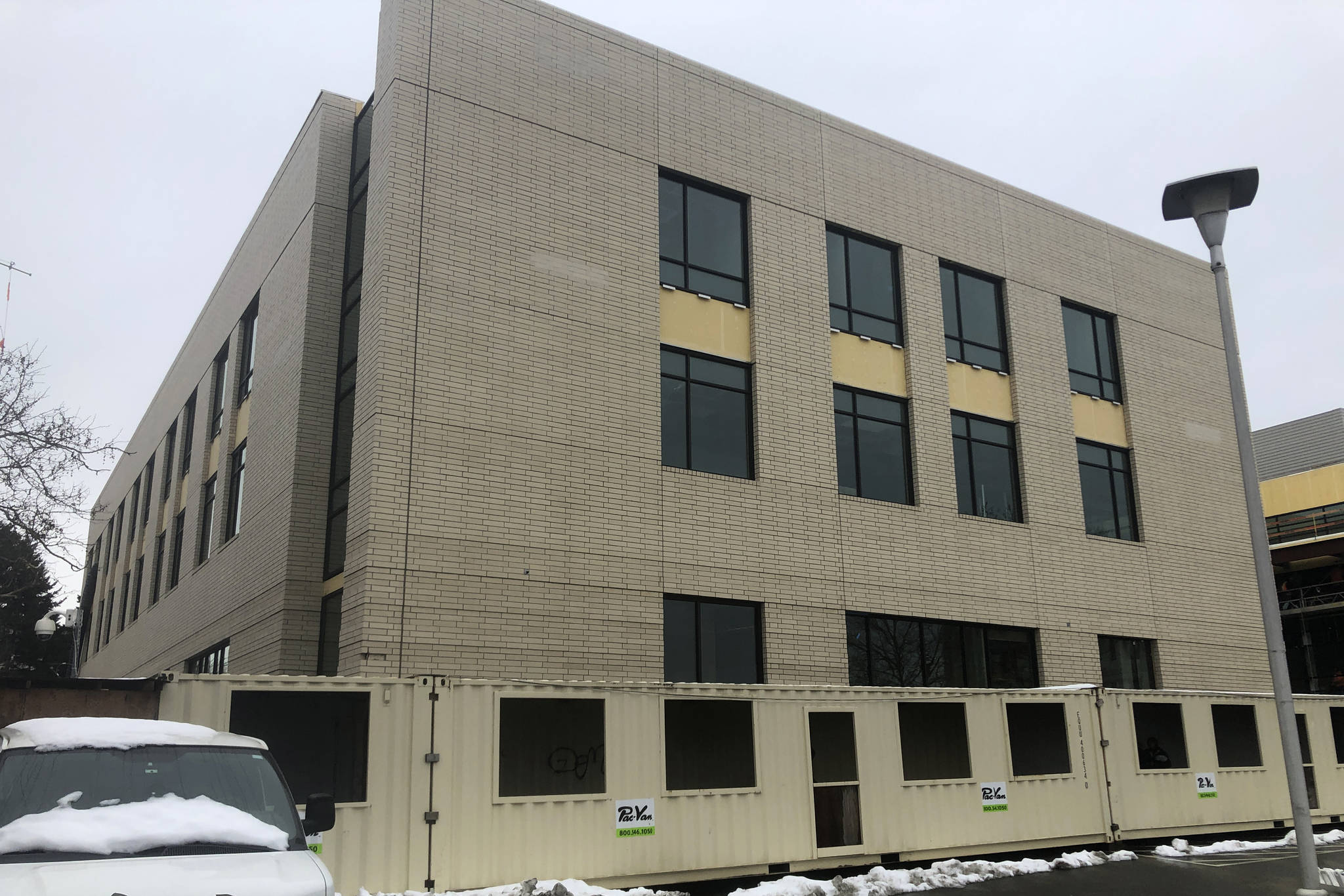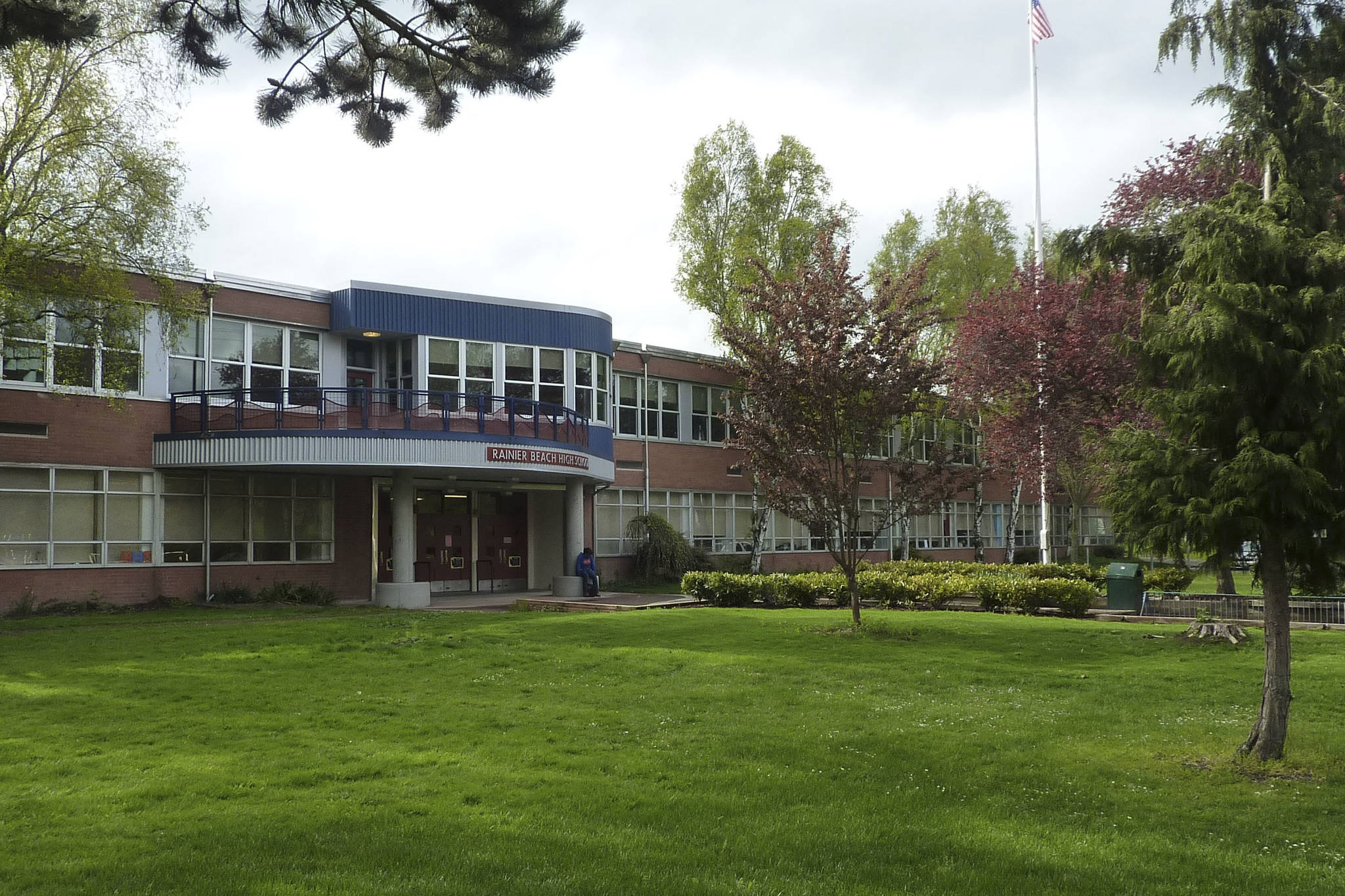In an atypical Valentine’s Day gathering, a group of anti-incarceration activists huddled around a table outside the towering King County juvenile detention center to glue sequins and tissue paper onto heart-shaped construction paper. Former mayoral candidate and activist Nikkita Oliver shouted through a microphone that the Valentine’s Day cards would be sent to King County Executive Dow Constantine and the judges. An organizer wearing a black shirt bearing the words “No New Youth Jail” stood beside her, holding a large heart-shaped sign that read “Love the Youth.”
But instead of presenting amorous poems, these valentines questioned King County Superior Court Judges’ funding priorities. “Regina Cahan, what side of history will you be on?” implored one note, addressed to the judicial official, that was framed with sparkly red pipe cleaners.
The activists and featured speakers gathered outside the current youth detention center complex to oppose the construction of a new $233 million complex designed to replace it. On Dec. 27, the state Supreme Court rejected the nonprofit Ending the Prison Industrial Complex (EPIC)’s challenge to King County against the new youth jail center that will contain a juvenile detention center, a parking garage, public areas, a courthouse, and youth-program space.
The county funding disagreement began after 2012, when voters approved a nine-year, $210 million levy to replace the current King County Children and Family Justice Center. Then in 2016, EPIC sued the county for overcollecting property taxes for the project and misleading voters by not expressly stating in the ballot measure that tax increases would be based on the 2013 levy. A year after EPIC filed its lawsuit, the Washington Court of Appeals ruled that King County was inappropriately levying property taxes for construction of the new detention center, although it didn’t halt construction that began in 2017. The case eventually made its way to the state Supreme Court, leading to the recent majority decision that EPIC didn’t adhere to the 10-day time limit for filing objections to ballot measures.
The county reports that the current Youth Services Center’s aging facilities would cost over $40 million to replace core systems. “The water is brown and unfit to drink. The rusty pipes leak. The basement floods and entire wings are shut down due to mold and unsafe conditions. The heating and air conditioning systems barely work,” Constantine and King County Prosecuting Attorney Dan Satterberg wrote in a 2012 Seattle Times opinion piece.
Advocates argue that juvenile detention disproportionately affects minority communities, as demonstrated in January–June 2017 county statistics that show that 44.5 percent of youth charged and detained were African American, even though African Americans make up less than 7 percent of King County’s population, according to U.S. Census Bureau statistics.
But despite the recent ruling, advocates present on Valentine’s Day expressed hope that the county would reconsider its investments in youth incarceration. “The capital costs of this building are but one portion of the county’s investment. Every day that this is open, every day that this is operational, they’re choosing to spend money in these systems,” said No New Youth Jail Coalition member Devon Knowles. “We’re going to continue all of our efforts… in terms of holding the county accountable, showing the power of community, community resistance, and that power of the people is stronger than the choices that the county is currently making.”
Speakers—including Poor People’s Campaign Washington State Chair Reverend Bianca Davis-Lovelace and youth-organization founders and directors from throughout the Puget Sound area—discussed community investments that could prevent youth incarceration. Some speakers said that the 2019–20 King County budget shows that officials’ priorities were profit instead of rehabilitation. They cited the $2.7 million allotted toward the Zero Youth Detention initiative—the county’s strategic plan to eliminate youth incarceration—while over $22.3 million additional funds will go toward redevelopment of the new detention center.
“The money that was spent on this youth jail could have gone toward affordable housing… [or] the education of our youth in Seattle,” Davis-Lovelace preached at the end of the press conference, listing other services such as after-school programs or community centers. “We will not stop until this youth jail is transformed into a center of hope.”









